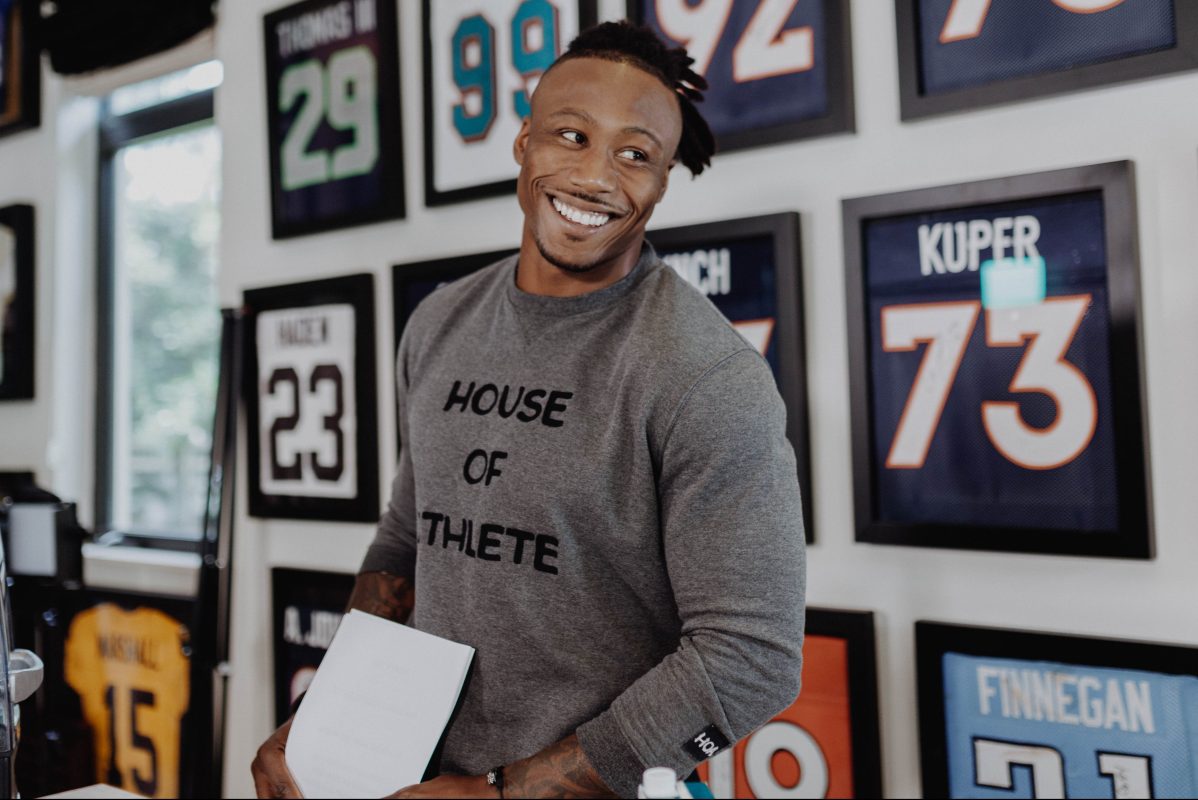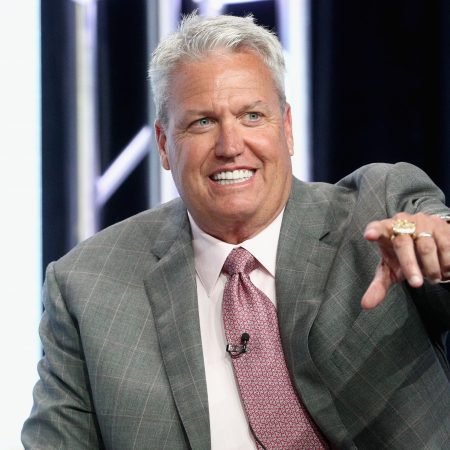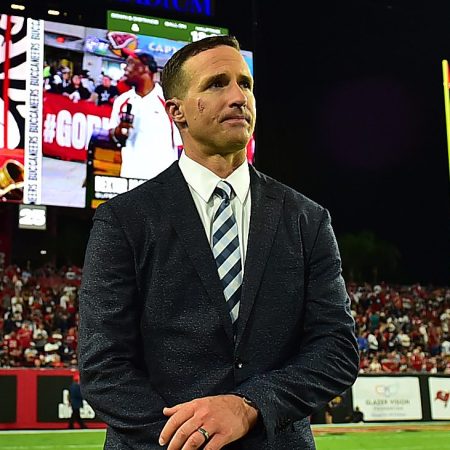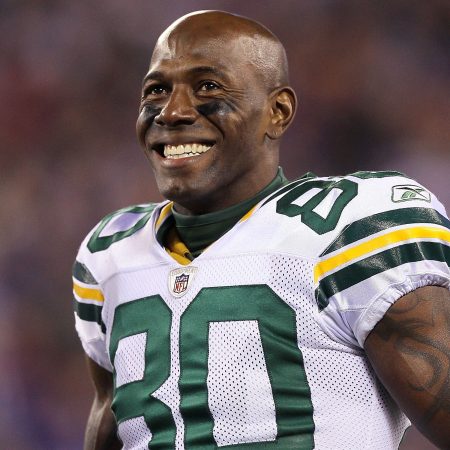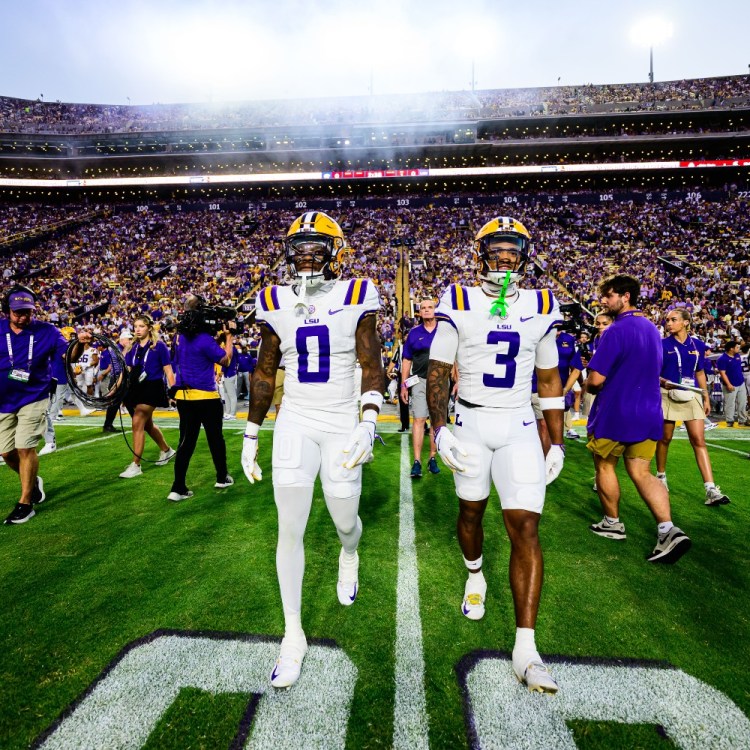This is Life After Football, a series that examines how current and former NFL players, coaches and executives are building a legacy beyond the gridiron.
Among a slew of accolades that Brandon Marshall racked up during his 13-year NFL career, he’s the league’s all-time leader for receptions in a game, having caught 21 passes as a member of the Denver Broncos in a 2009 loss to the Indianapolis Colts. Now Marshall is proving his worth in another phase of the game: as a TV broadcaster and podcast host, gigs in which he’s nearly as smooth of an operator as he was on the field.
Marshall, who is in the midst of the second season of his weekly I AM ATHLETE podcast/YouTube series, actually got his start getting paid to talk about football when he was still collecting a check to play — Showtime hired him a full-time analyst on INSIDE THE NFL in 2014, when he was a member of the Chicago Bears.
Candid, critical and confessional — he famously discussed his diagnosis with borderline personality disorder (BPD) and some of the issues it caused in his personal life in 2011 — Marshall remains a hit in Showtime’s NYC studio to this day. At first a bit reluctant to be completely unfiltered in order to avoid being a distraction for his team, Marshall has no problem whatsoever speaking his mind now that he’s retired.
“I’m freer. I’m very vocal. I’m unapologetic. I’m bold and I will say what’s on my mind. I wasn’t able to do that. That was something I had to navigate through,” Marshall tells InsideHook. “I feel like I’m now able to be myself where I don’t have to hold back. I can talk about a coach. I can talk about another player the way I would offline. Before, it was me talking strategy and Xs and Os. I couldn’t really infuse my personality the way I wanted to. Now, you can turn on the show and you’re going to get me raw and uncut.”

A member of six NFL teams during his career, Marshall was quickly able to establish on-camera chemistry with co-hosts like Phil Simms and Ray Lewis, just like he did in the locker room with new teammates during his playing days.
“It’s just coming in and understanding your place and your role and the seat that you occupy,” Marshall says. “That’s first and foremost. You really have to have an identity and know who you are as an analyst, as a host and as a talent in front of the camera. Then you transition into chemistry. You want to be able to disagree, but you also want the viewers to know that you guys care about each other. That’s the makings of a great show and a great crew.”
According to Marshall, some of the lessons he learned on the football field translate to performing on the set.
“It’s the locker room. It’s the same conversation. Even today, it’s the same thing where I go in and the energy needs to be right,” he says. “We’re not competing for the Lombardi Trophy. We’re competing for a Sports Emmy, and the things that we learned from playing ball help us become really good on television. It is work ethic and energy and camaraderie and chemistry. You use all the things from playing football and being a part of that locker room to be awesome on the set.”
Football has also helped Marshall with a business venture, a lifestyle wellness brand called House of Athlete that offers members physical training as well as mental fitness opportunities and support.
“You know what has been amazing utilizing in this transition from football to business? It’s adversity,” he says. “In sports, you lose more than you win, and you miss more shots than you make. In football and in business, it’s the same way. You’ve got to have some fortitude. You’ve got to be able to wake up every day and say, ‘You know what? I may get my ass kicked today, but tomorrow I’m swinging again.’ Being able to get knocked down and get back up because you have a belief in who you are has been the greatest asset for me in business.”

Though Marshall’s 2011 BPD diagnosis adds to the adversity he must contend with, the disorder is also one of the factors that motivates him.
“My life was radically transformed in 2011 on the campus of McLean Hospital after getting a correct diagnosis and then the right treatment plan with the right people,” he says. “It was then where I was like, ‘You know what, man? This is why I’m here. Football is my platform, but not my purpose. This is my purpose. So, how do I use my story to help other people?’ My goal has always been to bridge the gap in the mental health space.”
To help himself accomplish that goal, Marshall spent three months with Harvard professor Anita Elberse studying former athletes who had transitioned well from competing to influencing the community via another platform — think Lance Armstrong, Boomer Esiason and Magic Johnson. Marshall’s experience at Harvard is what ultimately led to him appearing on Showtime as well as FS1’s First Things First.
“I don’t want to be in front of the camera. The reason I did it goes back to that case study with Harvard,” Marshall says. “I was like, okay, ‘The game is going to be taken away from me. So how can I continue to have a voice to talk about mental health?’ That’s why I got into production and television. That’s why we’re here. It’s all about mental health for me. I AM ATHLETE, FS1, Showtime … it’s all to push people to take care of themselves mentally, physically, emotionally. That’s my purpose. It’s been a bit of a journey, but you’ve got to have a platform. For me, anytime I get an opportunity to talk about mental health, I’m going to do that, and it’s been working really well.”
Whether you’re looking to get into shape, or just get out of a funk, The Charge has got you covered. Sign up for our new wellness newsletter today.
